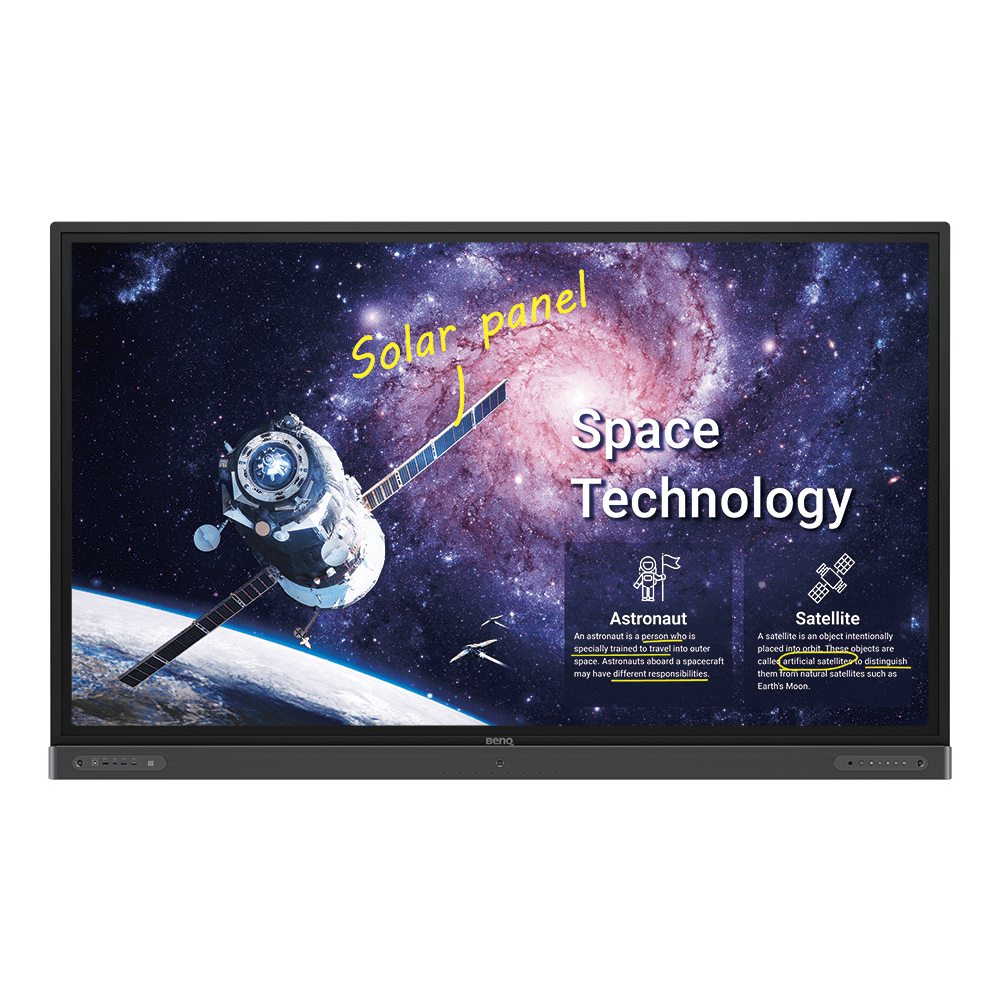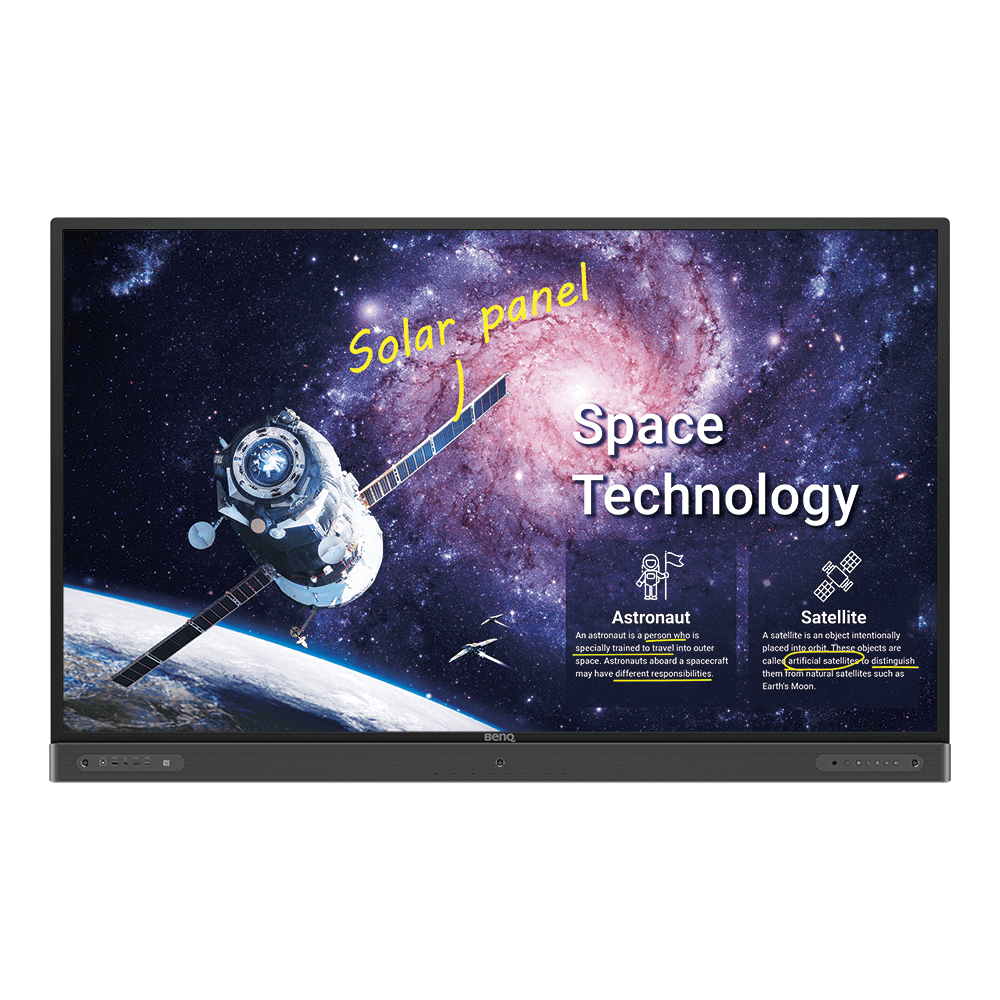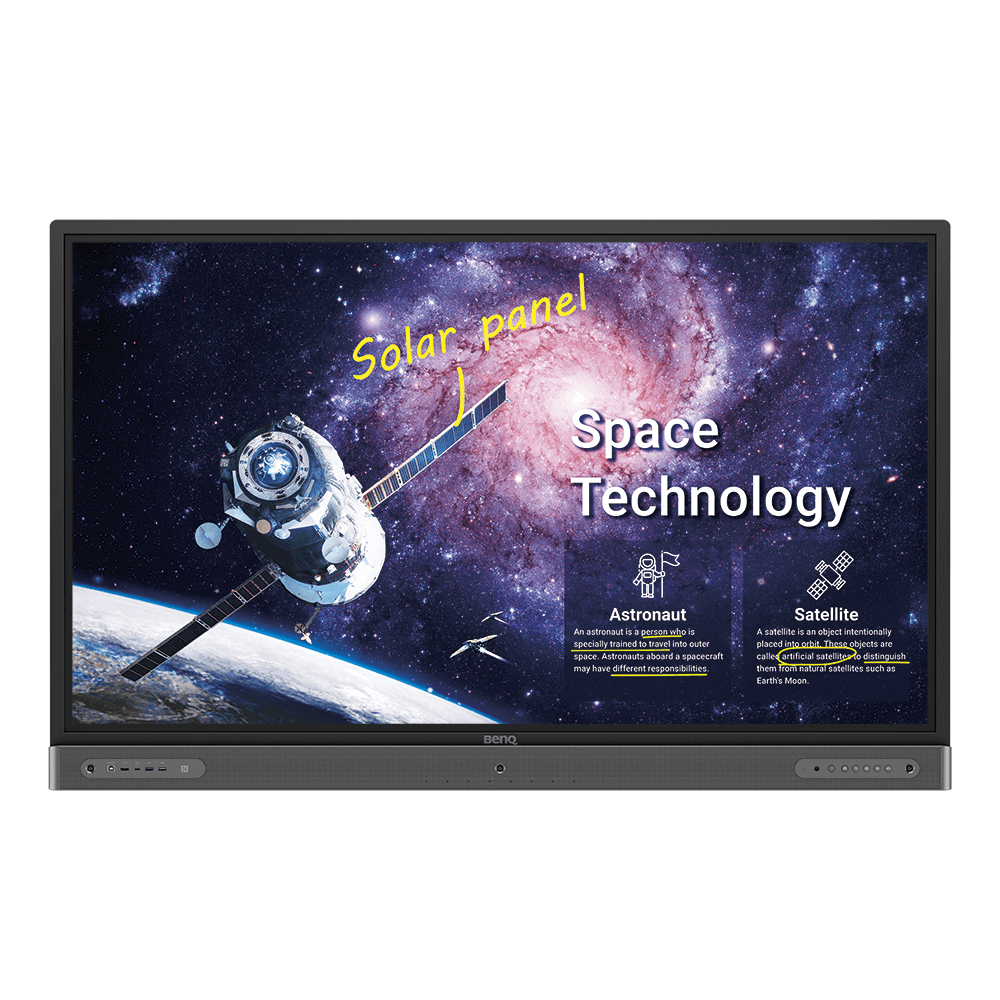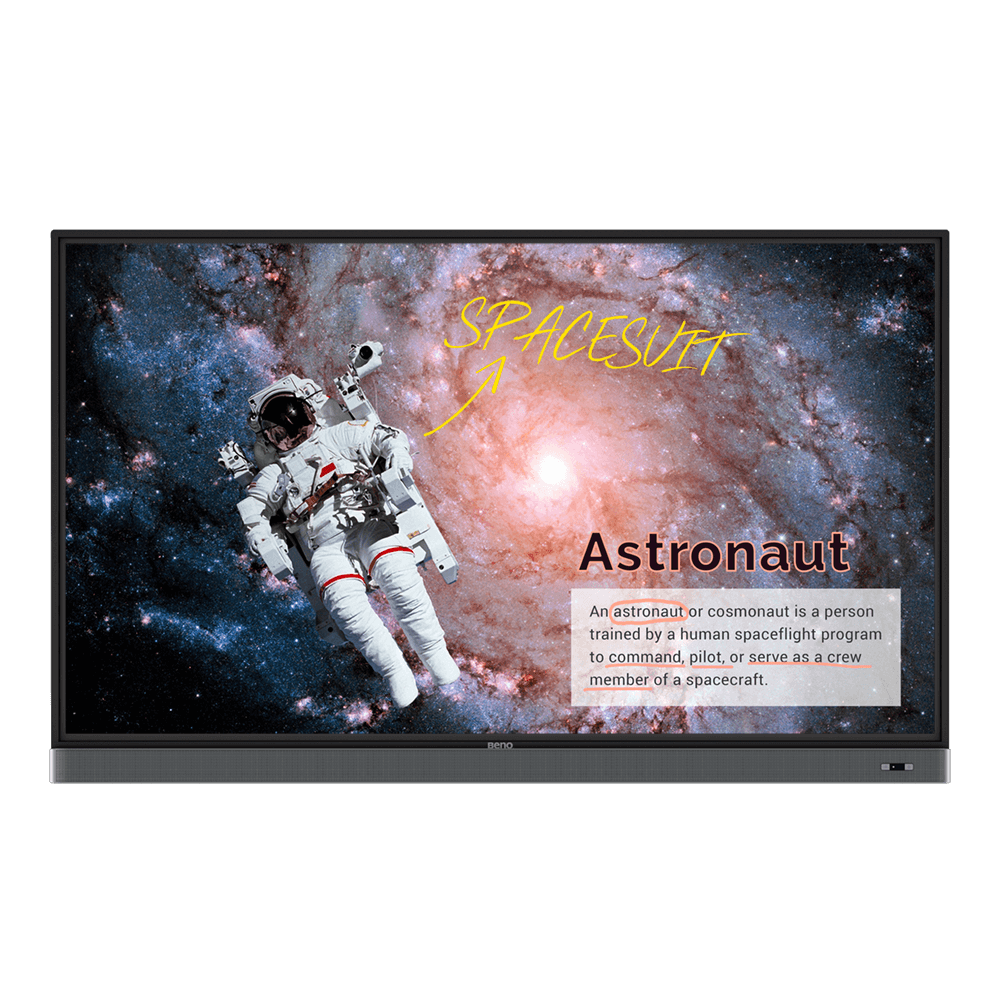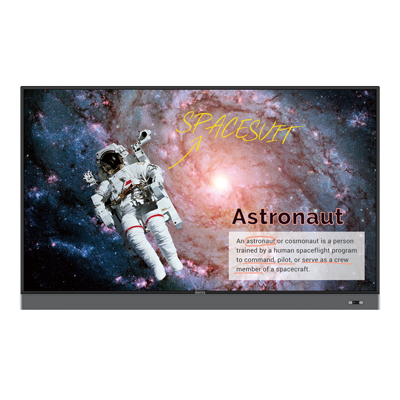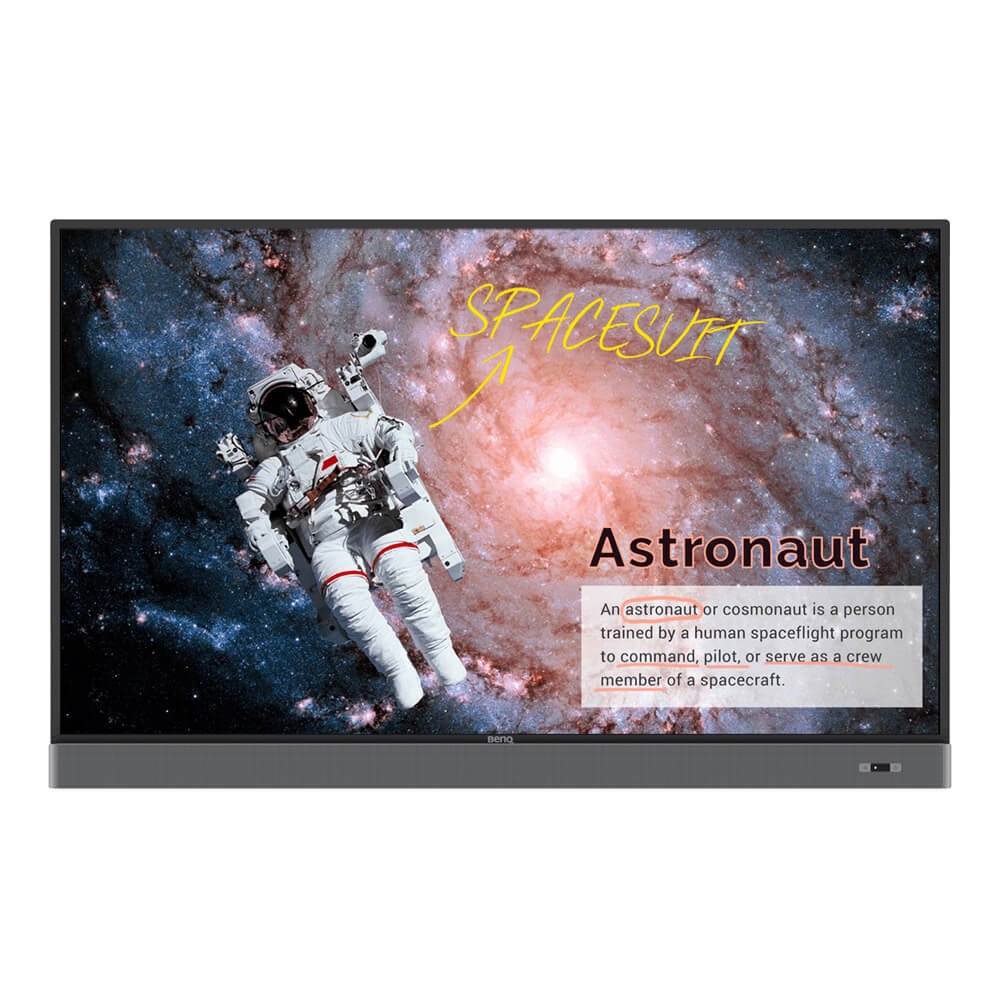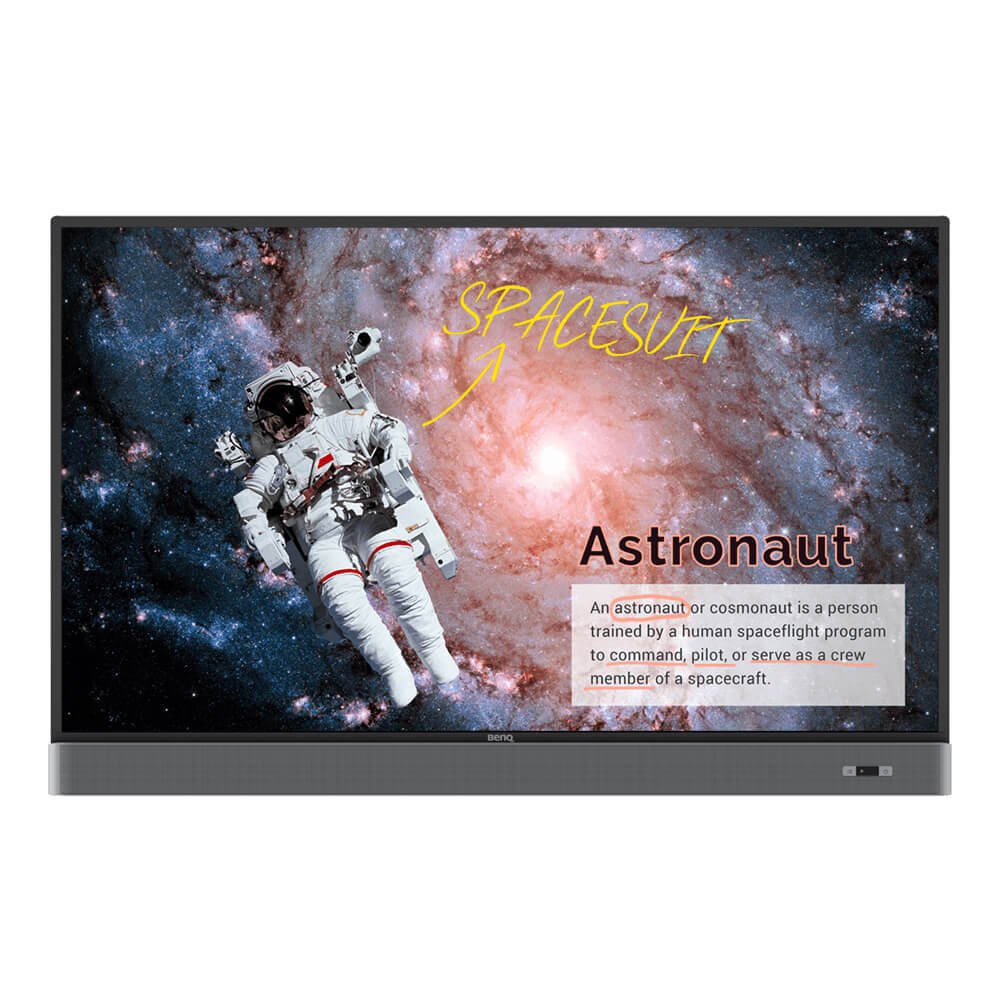Learn what you need to prepare and what steps to take to connect with your remote students in engaging way with BenQ Interactive Displays
What Accessories Do You Need for BenQ Interactive Displays?
- Teacher Tips 'N Tricks
- Interactive Displays for Education
- 2021-10-19
The world tries to move past COVID-19, but reality dictates that school year 2021-2022 and likely beyond will still experience some effects from the pandemic. Remote learning and participation as well as blended or hybrid learning class models were experienced by many students and educators for the first time due to COVID-19. However, now they’re more normalized and here to stay to a large extent. Not just because of health concerns, but also to address lingering issues that were part of the educational landscape for decades if not longer. For example, hybrid learning and tools such as BenQ digital interactive displays help reach students physically unable to attend classes, or perhaps learners located in outlying areas. Similarly, digital tools and blended learning in hybrid classrooms allow students to experience knowledge from educators “transported” into the class from a remote location.
In the response to the pandemic, schools upgraded their teaching toolset with digital additions that support hybrid learning and remote education. Among the most popular by far were interactive displays, with BenQ a leading choice. While complete packages on their own are more than enough to get you going, interactive displays can be improved even further with the right accessories. We’re here to show you which ones are the most important and helpful if you wish to augment your interactive display experience.

List of Must-Have Accessories for BenQ Interactive Boards
Classroom Wi-Fi Routers
Designed as fully online, always-connected devices, interactive displays work best when they have access to excellent internet connectivity. They’re also best experienced with as little cable mess as possible, and support strong Wi-Fi signals where available. Thus, we recommend your classrooms have dedicated Wi-Fi routers or repeaters to ensure strong wireless coverage.
Reliable, consistent access to the internet makes a wealth of resources and apps available right from the interactive display with no need to rely on any additional devices. And if that access is wireless, all the better. You could use a LAN cable, but that creates more wiring hassles plus limits the portability of the interactive display, which is part of its charm.
Additionally, with good Wi-Fi in every class the full benefits of BYOD (bring your own device) emerge. Students can use their laptops, tablets, and smartphones to access personal cloud accounts, retrieve content, then share and collaborate on it with the help of our EZWrite software. Or content can be mirrored from personal devices to the interactive display directly through the very intuitive InstaShare app.
Good Quality Webcam (Laptop Cam Works, Too)
BenQ does make webcams, but we’re not just trying to sell you another product. Whichever brand you choose, make sure it’s a reputable one and that the webcam specs are up to par, for example 1080p 60Hz at the very least. However, BenQ webcams are guaranteed compatible with our boards and we stand behind their quality. A good webcam makes a big difference by turning Zoom, Teams, or Skype sessions a lot clearer and more approachable. Whichever online conferencing tool you choose, a webcam will prove extremely helpful, and so you should get one that will prove a solid performer.
If teachers have access to laptops with good built-in cameras, that may suffice. However, experience shows that the cameras bundled with laptops don’t measure up to dedicated, external USB webcams. As such, using the laptop camera should be a last resort.
Here are some tips for setting up a remote class using interactive display, which also covers the camera topic
NFC Sensor Pens or Styluses
You guessed it, BenQ makes these too, so you know you have a quality option available, guaranteed to be compatible with our interactive displays. While you don’t specifically need a pen or stylus to use interactive displays due to excellent multi-touch support, having one does offer a very familiar whiteboard experience. This may help many teachers and also students feel more at ease with switching to an interactive, digital display from a traditional board.
BenQ interactive displays support multiple NFC pens simultaneously, so there’s no need to keep passing the stylus among groups of students. This is great for team activities and slightly minimizes the sharing of objects, which can be good for hygiene and overall health.
With NFC pens or styluses, the EZWrite experience becomes even quicker and more intuitive. Annotating, creating, editing, and overall collaboration gain a whole dimension of instinctive ease, true to the “EZ” part of EZWrite. For having more options and covering more ground, we recommend adding a few NFC pens to your BenQ interactive display. Connectivity is a breeze, using the same sensor tech that our Tap ‘N Teach feature employs. This leads us onto the next accessory.
NFC Cards
Made by BenQ, NFC cards work with our Tap ‘N Teach technology to enable instant log-in to interactive displays without having to fuss with settings or relocate apps, files, and other content. Teachers are issued NFC cards and then log in on an interactive board with one tap. That teacher’s profile, settings, and content then come up. If another teacher later signs in, their profile is loaded. It takes a second and is far preferable to manually getting started from a complete shutdown of the board. It’s also very secure, and means only authorized users have access to the interactive display.
Find out more about BenQ Tap ‘N Teach technology to get a better understanding of its benefits.
Interactive Display Trolley
We even make the portable trolleys! They’re not just ergonomic, they’re very useful and practical. A big advantage of interactive boards is that with the right accessories you can easily move them between classrooms. The trolley is that accessory, instantly giving the board wheels so teachers and students can have fun moving the board together to another classroom. The trolley also proves useful when you want to change the position of the board within one classroom, or simply adjust its angle. Without a trolley, any of these choices become much more cumbersome, because interactive boards do have some weight to them and are built tough for durability. A trolley is the best option for portability.
Also, with social distancing perhaps still a requirement or due to just having a classroom packed with learning materials and student items, you may want to save some space. A trolley allows you the freedom to figure out where you want the interactive board situated so you may optimize classroom layout for maximum space efficiency.
Full Solution for Complete Classroom
As we said at the outset, interactive displays are amazing tools as-is, but they’re made better with the right accessories. Start upgrading your own BenQ interactive boards now. Our sales and support experts are available to help your journey begin.
Teacher Tips 'N Tricks
-
Trends & Knowledge
[Teacher Tips 'N Tricks] How to Use BenQ Interactive Display for Remote Teaching
2021.08.06 -
Trends & Knowledge
[Teacher Tips 'N Tricks] How to Get Smarter, Space-Saving Classroom with BenQ Display
Need to reduce the classroom clutter and want to use this as an opportunity to make your classroom smarter too? Here is how Interactive Displays can help you.
2021.09.13 -
Trends & Knowledge
[Teacher Tips 'N Tricks] How to Digitize Your Classroom with BenQ Interactive Displays
A push for digitization of classrooms is a strong trend. Are you wondering what steps you need to take to achieve that goal? Read on to learn more.
2021.07.30

